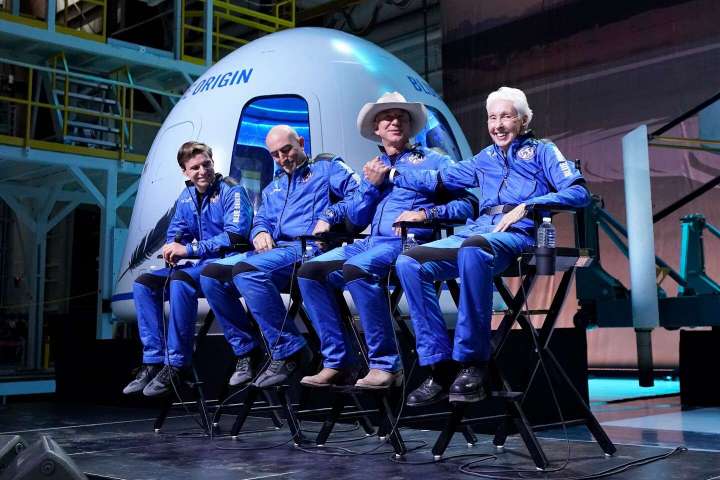Blue Origin’s New Shepard rocket appeared to suffer a serious problem after lifting off Monday morning, forcing the vehicle’s emergency abort system to jettison the capsule away from the booster.
Blue Origin rocket suffers problem during uncrewed launch

Leading up to the launch, Blue Origin flight controllers called a series of holds, delaying the flight. It lifted off shortly before 10:30 a.m. Eastern from the company’s launch site in Van Horn, Tex. After clearing the launch tower, it entered what is known as “Max Q,” or the moment when aerodynamic pressure is greatest on the vehicle as it pushes through the atmosphere on the way to space.
Suddenly, at about 1 minutes 5 seconds into flight, the capsule’s emergency abort system kicked in, quickly shooting it away from the booster. The capsule’s parachutes later deployed, and it landed softly in the West Texas desert. It was unclear what happened to the rocket booster.
During a live broadcast of the event, Erika Wagner, Blue Origin’s payload sales director, said: “It appears we’ve experienced an anomaly with today’s flight. This was unplanned and we don’t have any details yet. But our crew capsule was able to escape successfully.”
Blue Origin has said repeatedly that it designed the vehicle to ensure safety, and before it flew any people, it rigorously tested the abort system.
“Safety is our highest value at Blue Origin,” Wagner said. “It’s why we built so much redundancy into the system.”
On Twitter, Blue Origin wrote: “We’re responding to an issue this morning at our Launch Site One location in West Texas. This was a payload mission with no astronauts on board. The capsule escape system functioned as designed. More information to come as it is available.”
On board the capsule were 24 payloads from schools, universities and organizations, including the American Institute of Aeronautics and Astronautics. It was the fourth flight for New Shepard this year, and the ninth flight for the reusable vehicle, which the company said is dedicated to flying science and research to space.
In all, Blue Origin has flown 31 people to space and was hoping to fly more this year. That will likely be on hold, while the company investigates what went wrong on Monday’s flight.
This story will be updated.






